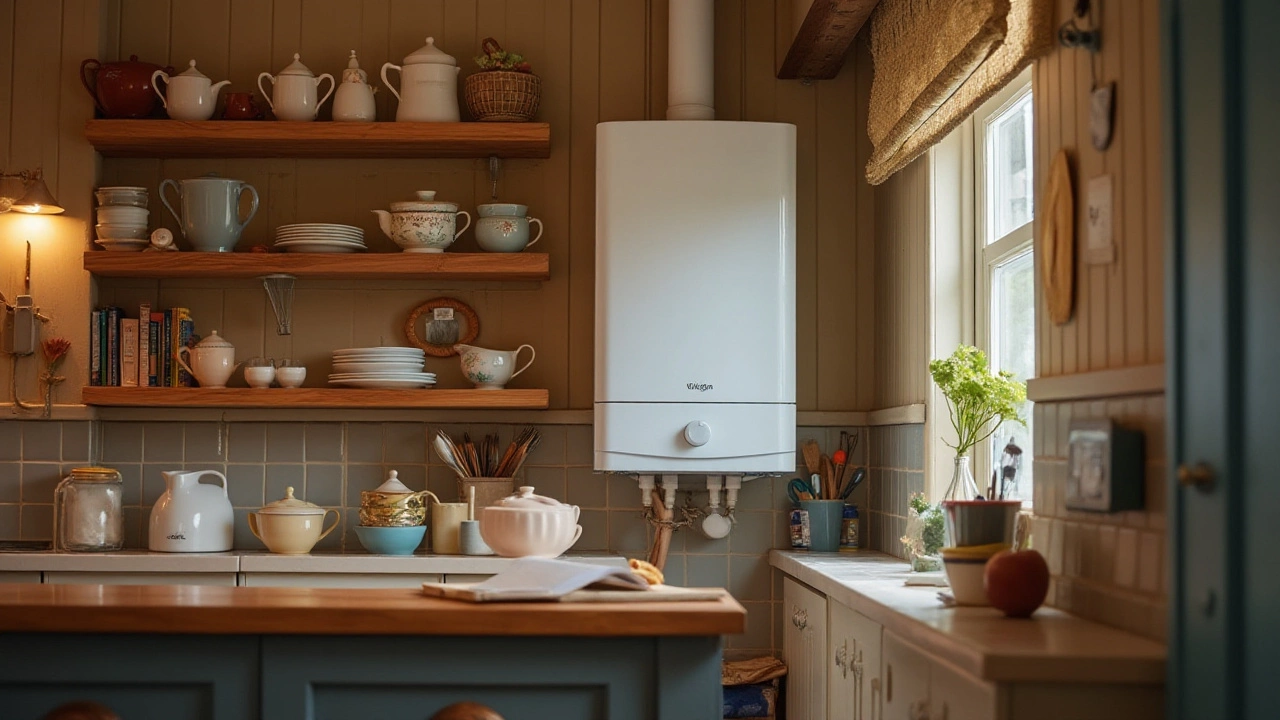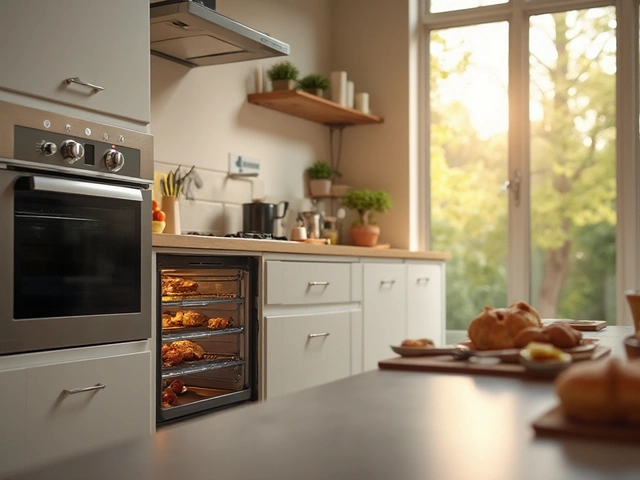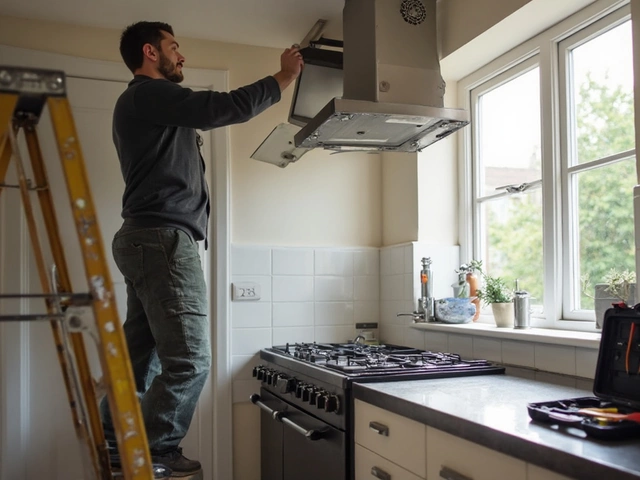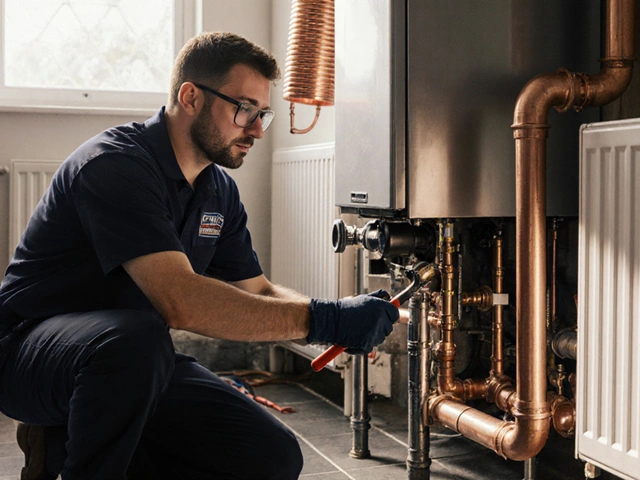Can I Service My Boiler Myself? What to Know Before You Try
June 6 2025Boiler Tips: Keep Your Heating Running Smoothly
Your boiler works hard to keep the house warm. A few easy habits can stop costly breakdowns and keep your bills low. Below are the most useful tips you can start using today.
Everyday Boiler Care
First, check the pressure gauge each month. It should sit between 1 and 1.5 bar when the system is cold. If it’s low, add water using the filling loop – most boilers have a simple valve you can turn. Too high pressure can cause leaks, so don’t over‑fill.
Keep the radiators clean. Dust on the panels reduces heat output. Use a soft cloth or a vacuum brush to wipe them once a month. If a radiator feels cool at the top, bleed it. A small key fits the bleed valve; open it just enough for a steady hissing sound, then close it.
Set the thermostat a few degrees lower at night or when you’re out. Modern thermostats remember the schedule, so you don’t have to think about it. A 1‑2 °C drop can cut energy use without sacrificing comfort.
Schedule a yearly service with a qualified engineer. A full service includes cleaning the burner, checking the heat exchanger, and testing safety devices. Skipping this step often leads to higher fuel consumption and hidden safety risks.
Flush the system every 5‑7 years, especially if you have hard water. Sediment builds up in the heat exchanger and makes the boiler work harder. A professional can do a power flush, but you can also drain a small amount of water and refill with fresh water as a quick fix.
When to Call a Pro
If you hear strange noises – banging, whistling, or gurgling – it’s time to call. Those sounds usually mean air, scale, or a failing pump. Ignoring them can cause a breakdown.
Watch for leaks around the pipework or the boiler casing. Even a slow drip can lead to corrosion and lower efficiency. Turn off the water supply and contact a certified gas engineer right away.
Watch the boiler’s flue. If it starts to produce soot, a strong smell, or an unusual colour, stop using the boiler and call an expert. Exhaust gases are dangerous, and a faulty flue can put your family at risk.
When the hot water runs out quickly or the heating takes a long time to warm up, it could be a fault with the pump or a build‑up of limescale. A professional can diagnose the exact cause and fix it before the problem spreads.
Finally, if you see the error code on the display and can’t find it in the manual, don’t guess. The wrong fix can damage the unit and void warranties.
Keeping these tips in mind will help your boiler run efficiently for years. Simple checks, regular cleaning, and a yearly service go a long way. If you need a reliable engineer, Bedford Gas Appliance Repair Services is ready to help. Give us a call, and we’ll make sure your heating stays safe and comfortable.
 25 Apr
25 Apr
Can You Service a Boiler Yourself? What You Need to Know Before Getting Started
Thinking about servicing your boiler yourself? This article breaks down what tasks you can actually handle on your own and which ones are best left to professionals. Find out what UK law says about DIY boiler work, what tools and skills you really need, and common mistakes that can cost you. Plus, get straightforward tips to keep your boiler working safely and efficiently all year round. Stay safe, save money, and know what’s within your DIY reach.
Read More... 29 Nov
29 Nov
Longevity of Boilers: How Many Years Can You Expect?
Exploring the longevity of boilers, this article delves into factors that influence their lifespan and provides insights on how to maximize their performance over the years. It examines the importance of regular maintenance, the impact of different boiler types, and signs your boiler might need a replacement. Whether you're a homeowner looking to prolong your system's life or someone considering a new purchase, you will find practical tips and interesting facts about boilers. Maintaining your boiler can lead to improved efficiency and significant cost savings.
Read More...



